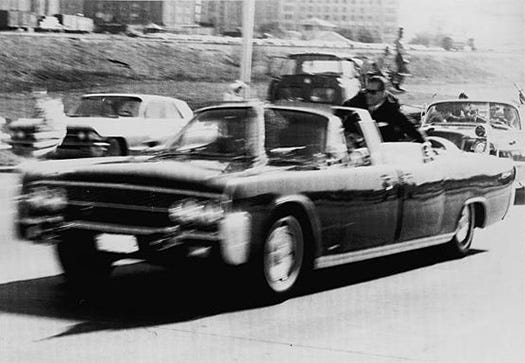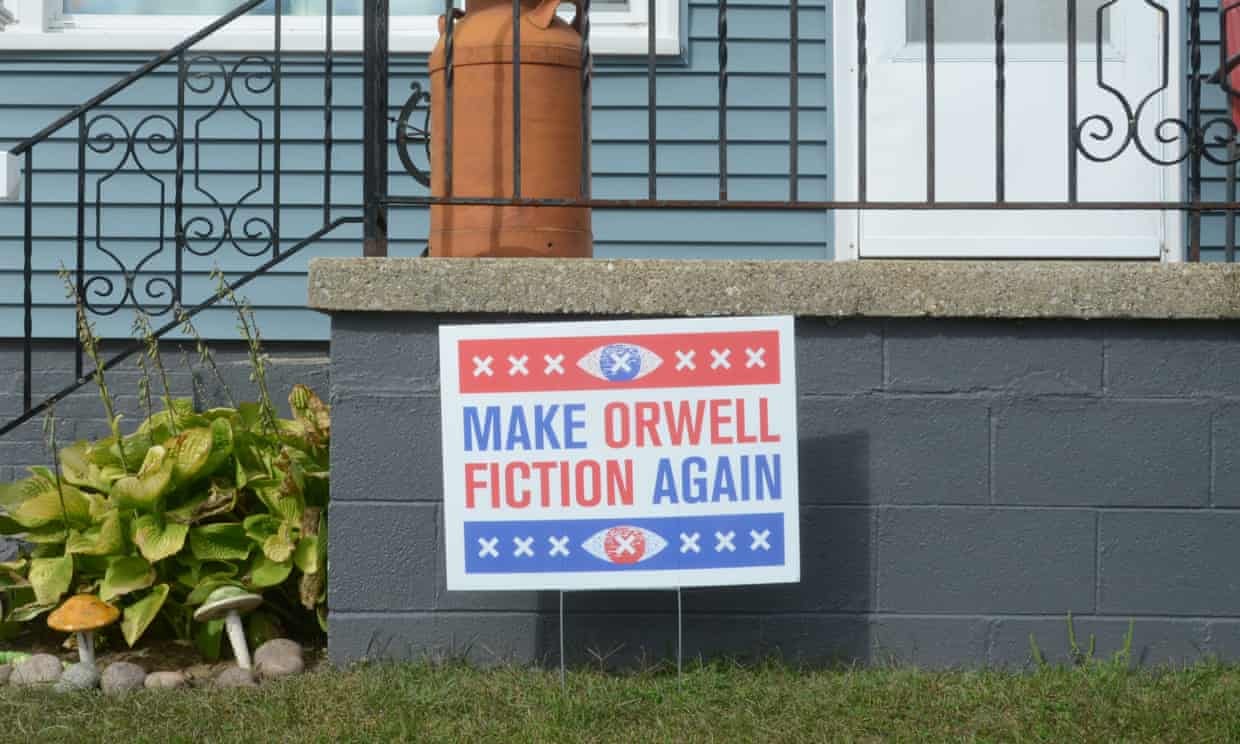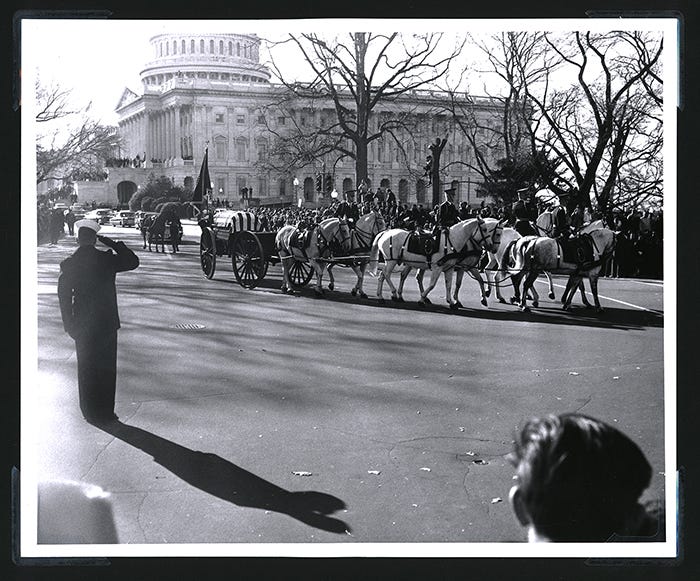The Weird Times: Issue 28, November 22, 2020

“When power leads man toward arrogance, poetry reminds him of his limitations. When power narrows the area of man’s concern, poetry reminds him of the richness and diversity of existence. When power corrupts, poetry cleanses.” —John F. Kennedy
+++
we know ourselves, the bearers of the light of the earth
he is given to, and of the light of all his lost
days;
we know the long approach of summers toward the
healed ground where he will be waiting, no longer the
keeper of what he was.
—Wendell Berry, from “November Twenty Six Nineteen Hundred Sixty Three”
+++
The Trump show needs to be cancelled now. What we are seeing in real time is an attack on our democracy that is so vile and disgraceful it must be called out and opposed by all Americans who still care about having a functional country. I’m done waiting for Republican so-called leaders to stand up. They are willfully aiding in the destruction of what was once called a noble experiment.
“The refusal of most Republicans to stand against President Trump’s unconscionable campaign to discredit a free election is one of the lowest points in the history of our republic — and a threat to democracy itself,” — E.J. Dionne, Washington Post
I’m not expecting anything uplifting from the anti-Democracy Trump party now.
+++
“Trump is rejecting the idea that Democrats can legally win an election. As this crisis drags on, more and more of his followers are echoing his insistence that the Democrats could not possibly win except by cheating. There is no evidence to support this claim. Trump’s lawyers have repeatedly admitted as much in court. It is rather a rejection of the possibility that Democrats can legitimately govern.
Our democracy depends on our ability both to criticize our government and to believe that we can legitimately elect a different set of leaders to advance different policies. If we lose the concept of a loyal opposition, we must all declare allegiance to the king.” –Heather Cox Richardson, Letters from an American
+++

Can American Democracy Survive Donald Trump? Sarah Churchwell, The Guardian, Nov 21, 2020
“A society becomes totalitarian,” Orwell warned in his 1946 essay “The Prevention of Literature”, “when its structure becomes flagrantly artificial: that is, when its ruling class has lost its function but succeeds in clinging to power by force or fraud.” The flagrancy is part of the point. At present, that flagrantly artificial power in the US depends on a president who refuses to concede, an administration that repudiates the results of an election that was transparently fair (as corroborated by independent international election observers), the Republican leadership complicitly silent or actively encouraging these falsehoods and surrogates who flatly lie about the election outcome. The result is that some 70% of Republican voters currently believe that Biden’s win was “rigged” – although they don’t explain how a Republican Senate was returned in this same “rigged” election. The Republican party, funded by vastly wealthy donors, has turned itself into America’s ruling class, clinging to fraudulent power by refusing to acknowledge the legitimacy of its opponents, withholding the consent of the loser that is necessary for democracy to function.
There is a simple reason for this: minority rule.
+++
“Facebook is the primary protector and enabler of the far right in the United States, without question. The company has sheltered and promoted this content for years. Mark Zuckerberg even now says that Steve Bannon calling for beheadings is not justification to ban him. Zuckerberg was also fine with tolerating Holocaust denial until he was called out for it.” —former conservative media figure Matthew Sheffield, interviewed in the New York Times by Adam Satariano, Nov 16, 2020
+++
Biden-voting counties equal 70% of America’s economy. What does this mean for the nation’s political-economic divide? Mark Muro, Eli Byerly Duke, Yang You, and Robert Maxim, Brookings.edu, Nov 10, 2020
“Biden’s winning base in 477 counties encompasses fully 70% of America’s economic activity, while Trump’s losing base of 2,497 counties represents just 29% of the economy. (Votes are still outstanding in 110 mostly low-output counties)
In short, 2020’s map continues to reflect a striking split between the large, dense, metropolitan counties that voted Democratic and the mostly exurban, small-town, or rural counties that voted Republican. Blue and red America reflect two very different economies: one oriented to diverse, often college-educated workers in professional and digital services occupations, and the other whiter, less-educated, and more dependent on “traditional” industries.”
+++
How We Can Stop the Spread of Covid-19 by Christmas, Michael Mina, MD, PhD, Time, Nov 17, 2020
“Antigen tests are “contagiousness” tests. They are extremely effective (>98% sensitive compared to the typically used PCR test) in detecting COVID-19 when individuals are most contagious. Paper-strip antigen tests are inexpensive, simple to manufacture, give results within minutes, and can be used within the privacy of our own home—the latter is immensely important for many people across the U.S….
If only 50% of the population tested themselves in this way every 4 days, we can achieve vaccine-like “herd effects” (which is when onward transmission of the virus across the population cannot sustain itself—like taking fuel from a fire—and the outbreak collapses). Unlike vaccines, which stop onward transmission through immunity, testing can do this by giving people the tools to know, in real-time, that they are contagious and thus stop themselves from unknowingly spreading to others.
The U.S. government can produce and pay for a full nation-wide rapid antigen testing program at a minute fraction (0.05% – 0.2%) of the cost that this virus is wreaking on our economy.
The return on investment would be massive, in lives saved, health preserved, and of course, in dollars. The cost is so low ($5 billion) that not trying should not even be an option for a program that could turn the tables on the virus in weeks, as we are now seeing in Slovakia—where massive screening has, in two weeks, completely turned the epidemic around.”
This is amazing and important news – please share this article widely, including to your congress people. They could actually do something to help America get through the biggest challenge of our time.
+++
This Pandemic Must Be Seen: If we could watch what’s really going on in hospitals, there would be no more complacency, Roxanne Khamsi, Wired, Nov 20, 2020
As for me—a medical journalist who has been reporting on coronaviruses from time to time since 2004—the terrifying, revelatory moment of this pandemic came not from reading any sentence in a news story or by checking bulletins from overseas. It came from watching a woman’s scream….
If many Americans still see the pandemic as a faraway problem, that’s because many Americans aren’t seeing the pandemic at all. Last week former White House press secretary Joe Lockhart tweeted out a call to action: “Hospitals across the country should bring the media into the emergency rooms, into the ICUs to see for themselves the carnage that's going on,” he wrote. “Guard patient privacy but show America what's going on.”
It’s time to pull back the curtain on the suffering caused by Covid-19. The virus itself is invisible, but its effects are not. We need to see the toll.
+++

How Joe Biden Did So Well in Georgia, Bev-Freda Jackson, The Conversation, Nov 21, 2020
Overall, Georgia’s 2020 turnout was roughly 800,000 more than in the 2016 presidential election.
An additional factor in the Georgia election result may have been President Donald Trump’s own statements discouraging his supporters from voting, but the real key was the grassroots organization, the modern echo of the Albany Movement, the Student Nonviolent Coordinating Committee and other efforts, that brought new voters into the fold.
+++
Tabulating the Victims of Plastic Pollution: Hundreds of sea turtles and marine mammals have been choked, snared, and hooked by plastic debris, Alastair Bland, Hakai Magazine, Nov 19, 2020
When biologists in Florida dissected the carcass of a manatee, they found its stomach and intestinal tract clogged with plastic bags. In Oregon, a photographer found a harbor seal at rest on the beach with a plastic strap so deeply girdled around its neck that it was almost concealed by blubber and inflamed skin. And at a South Carolina rescue center, a loggerhead turtle undergoing rehabilitation defecated more than 50 pieces of plastic.
These are just several of the nearly 1,800 events compiled in a new report from the marine conservation group Oceana. The report explores, in graphic detail, how plastic waste is directly harming the ocean’s inhabitants.
+++
Green Hydrogen: Could It Be Key to a Carbon-Free Economy?
Green hydrogen, which uses renewable energy to produce hydrogen from water, is taking off around the globe. Its boosters say the fuel could play an important role in decarbonizing hard-to-electrify sectors of the economy, such as long-haul trucking, aviation, and heavy manufacturing, Jim Robbins, Yale Environment 360, Nov 5, 2020
“It is very promising,” said Rachel Fakhry, an energy analyst for the Natural Resources Defense Council. Experts like Fakhry say that while wind and solar energy can provide the electricity to power homes and electric cars, green hydrogen could be an ideal power source for energy-intensive industries like concrete and steel manufacturing, as well as parts of the transportation sector that are more difficult to electrify. “The last 15 percent of the economy is hard to clean up — aviation, shipping, manufacturing, long-distance trucking,” Fakhry said in an interview. “Green hydrogen can do that.”
+++
Grassland 2.0 Aims to Replace Soy and Corn Farming with Perennial Pasture in the Upper Midwest: The University of Wisconsin-Madison project will help farmers transition to pasture-based systems to protect the environment and boost rural livelihoods while meeting demand for grassfed meat and dairy. Nicole Rasul, Civileats.com, Nov 11, 2020
“…Grassland 2.0, is a five-year project housed at the University of Wisconsin-Madison that aims to begin transforming the Upper Midwest’s farm landscape from 75 percent corn and soybeans to 75 percent perennial grassland, Jackson explains, while acknowledging that this monolithic task will take decades.
It’s an ambitious goal, but Jackson says timing is of the essence, as the current system “only works for a very few and is devastating rural communities and environments.” Instead, the group aims to build a thriving, pasture-based farm economy while transforming the region’s rich agricultural landscape to one that “provides for us while building soil, cleaning water, reducing floods and supporting biodiversity.””
+++
Bug bites: Edible insect production ramps up quickly in Madagascar, Emilie Filou, Monga Bay, Nov 19, 2020
In the last two years, two insect farming projects have taken off in Madagascar as a way to provide precious protein while alleviating pressure on lemurs and other wild animals hunted for bushmeat.
One program, which promotes itself with a deck of playing cards, encourages rainforest residents in the northeast to farm a bacon-flavored native planthopper called sakondry.
Another program focuses on indoor production of crickets in the capital city, Antananarivo.
Both projects are on the cusp of expanding to other parts of the country.
+++
No place is safe: Tiny bit of plastic pollute the snow, streams on iconic Mount Everest
"No one had ever looked at microplastics on Everest before—the scary thing is we found microplastic in every single snow sample that we took." Hannah Seo, Environmental Health News, Nov 20, 2020
“New analysis of 19 snow and stream water samples collected from the world's highest mountain—standing at 29,029 feet and located at the China-Nepal border— showed the presence of microplastics in every snow sample from five locations, and in three out of eight stream water samples from six locations. The concentrations of microplastics ranged from three to 119 microplastics per liter of snow and zero to two microplastics per liter of stream water.”
+++
Except Sometimes
I get along without you very well,
Of course I do.
Except sometimes when soft rain falls,
And dripping off the trees recalls
How you and I stood deep in mist
One day far in the woods, and kissed.
But now I get along without you – well,
Of course I do,
I really have forgotten you, I boast,
Of course I have.
Except when somone sings a strain
Of song, then you are here again;
Or laughs a way which is the same
As yours; or when I hear your name.
I really have forgotten you — almost.
Of course I have.
—Jane Brown-Thompson
This poem was first published in 1924, then adapted by Hoagy Carmichael into the now-famous song “I Get Along Without You Very Well.” (sung here by Chet Baker)
+++
Coming
Home
At the door
we catch
our falling
bodies
in time
Behind
our
backs
two
fields
soak
up
a
steady
rain
Where
else
in this
same
world
are
there
roads
moving
away
from us
at the
speed
of light
—Beau Beausoleil
No Walk is Ever Wasted, Matthew Beaumont, TheParis Review, Nov 17, 2020
“In the twenty-first century, in cities that are the site of acutely disorienting cycles of creative destruction, where pedestrians are increasingly inured to the environment they more and more mechanically inhabit, not least because of their dependence on the technology of smartphones and other handheld devices, we need another modernism of the streets. And we need to celebrate some of those embattled individuals for whom, in the nineteenth and the first half of the twentieth centuries, at the high tide of industrial modernity, this activity was a sort of spiritual imperative; a vocation.
…
Like other surrealists, and indeed like other modernists of every stripe, Breton believed that the footstep, as Michael Sheringham puts it, is the “emblem of the free everyday.” The footstep is an opportunity to escape the logic of abstraction, the logic of exchange-value constitutive of those modes of transport with which, in the industrial metropolis, the walker must compete, from automobiles to buses to trains. Every footfall, then, in contrast to the revolution of a set of wheels that travels along roads or tracks, is an adventure. A flight. It is open to “surprising detours.” And it is, at the same time, a faint imprint, on the pavements and other surfaces of the city, of these necessarily individual escapades.”
+++
I’ve noticed recently an increased level of discussion about alternatives to buying books from the now over-large retail behemoth, Amazon. During this new period of disruption, giant tech-based companies are thriving, while independent and local stores of all kinds are suffering, many of which are now closing up shop after months of reduced business.
If we want to come out of this pandemic with a healthy human-scale economy, we, the individual members of society will need to make buying decisions based on our commitment to our fellow citizens, who happen to be our booksellers, hardware store owners, friends and neighbors.
This “holiday season” in particular, we must increase our efforts to buy local, buy from artisans, craftspeople, farmers, independent bookstores, grocery stores, etc. as much as possible.
Spend wisely – with eyes wide open and awareness of the links that connect us to one another.
There is no such thing as the viability of states or of nations, there is only a problem of viability of people: people, actual persons like you and me, are viable when they can stand on their own feet and earn their keep. You do not make non-viable people viable by putting large numbers of them into one huge community, and you do not make viable people non-viable by splitting a large community into a number of smaller, more intimate, more coherent and more manageable groups. – E.F. Schumacher, Small is Beautiful
Buy books from the The Weird Times reading list at Bookshop.org to support independent booksellers all over the United States.
The Thanksgiving Tale We Tell Is a Harmful Lie. As a Native American, I’ve Found a Better Way to Celebrate the Holiday, Sean Sherman, Time Magazine, Nov. 11, 2019
Thanksgiving really has nothing to do with Native Americans, and everything to do with an old (but not the oldest) guard conjuring a lie of the first peoples welcoming the settlers to bolster their false authority over what makes a “real” American. (Remember, only in 1924 were Native Americans allowed to become citizens of the United States — and it took decades more for all states to permit us to vote.) It is a story of supposed unity, drained of the bloodshed, and built for the sake of division.
…
No matter where you are in North America, you are on indigenous land. And so on this holiday, and any day really, I urge people to explore a deeper connection to what are called “American” foods by understanding true Native-American histories, and begin using what grows naturally around us, and to support Native-American growers. There is no need to make Thanksgiving about a false past. It is so much better when it celebrates the beauty of the present.
Sean Sherman is the founder and CEO of The Sioux Chef and the author of The Sioux Chef’s Indigenous Kitchen, which won the 2018 James Beard Award for best American cookbook.
+++
Please stay safe everyone. And take time to enjoy the beauty that both surrounds and is within us, despite the noise, the anger, and the pain that is so much of our daily experience of the world.







